
Maternal pregnancy-related smoking was measured using key metrics: Provider or self-reported smoking during pregnancy and cotinine and hydroxycotinine in neonatal blood.

Lynda Charters Enoch started her early “eye life” at the Schepens Eye Research Institute, Boston, which ultimately culminated in her current position as an Editor of Ophthalmology Times.

Maternal pregnancy-related smoking was measured using key metrics: Provider or self-reported smoking during pregnancy and cotinine and hydroxycotinine in neonatal blood.

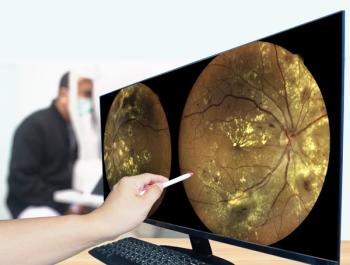
The sharing of data between ophthalmologists and optometrists ultimately can lead to earlier diagnosis and better results for patients.

Imaging biomarkers are useful to determine the degree of EZ attenuation in the fovea.

Delegates will analyze the most relevant and controversial issues within the field of ophthalmology at this year’s congress in Lisbon, Portugal, from March 24 to 25.

Artificial intelligence (AI) with ultra-widefield fundus autofluorescence images may be helpful to objectively estimate progression of retinitis pigmentosa (RP) and visual function.

The Keralink trial results answered an important question regarding the time at which corneal cross-linking should be performed.
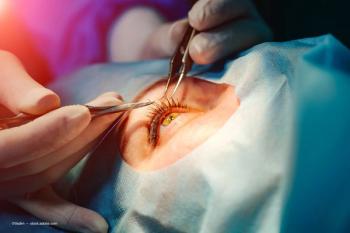
Yusuke Oshima, MD, PhD, in a presentation at the 38th Asia-Pacific Academy of Ophthalmology Congress, Kuala Lumpur, Malaysia, discussed the advantages of using a beveled-tip ultra-speed probe for complete vitreous shaving during retinal detachment vitrectomies.
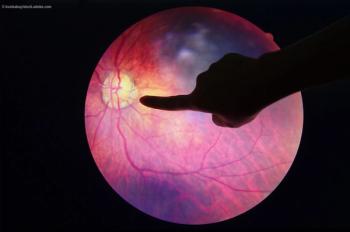
Voraporn Chaikitmongkol, MD, discussed step therapy and reported the results of a major study, the Diabetic Retinopathy Clinical Research (DRCR) Protocol AC, at the 38th Asia-Pacific Academy of Ophthalmology Congress, in Kuala Lumpur, Malaysia.
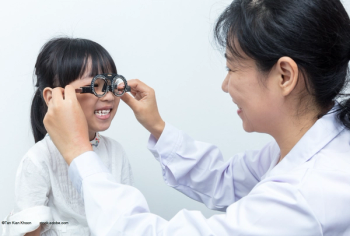
Children who ultimately develop pathologic myopia may have a different retinal appearance at an early age.
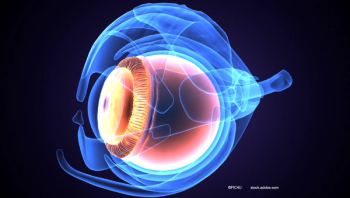
Greater anatomic improvements (central subfield thickness reduction, proportion with absence of subretinal fluid and intraretinal fluid) were seen with faricimab versus aflibercept during the matched dosing period (week 4, week 8, and week 12).

Apellis has received FDA approval for intravitreal pegcetacoplan (SYFOVRE) to treat geographic atrophy secondary to AMD. This news follows the submission of the 24-month phase 3 data in November 2022.

The agenda includes the Opening Ceremony, Women in Ophthalmology Luncheon, and Young Ophthalmologists’ Night, and that's only a sampling. The results of the APAO-Asia-Pacific Ocular Imaging Competition will also be announced.

The money raised this year will help support the Princess Elizabeth National School for Special Education in Malaysia and APAO Young Ophthalmologist activities.

The family-friendly conference, being held at the El Conquistador Resort in Puerto Rico, will promote women in the field, according to founder and program director Bonnie An Henderson, MD.

APAO returns to an in-person congress for the first time since the start of the COVID-19 pandemic.
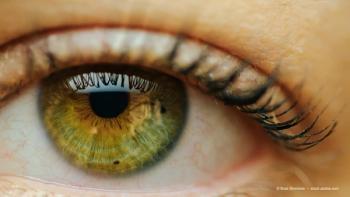
The goal of the National Eye Institute (NEI) is to shed light on rare diseases that affect every bodily system.

In a presentation at the Angiogenesis, Exudation, and Degeneration 2023 meeting hosted by Bascom Palmer Eye Institute, Baruch Kupperman, MD, PhD, detailed research in which investigators evaluated risuteganib for safety and effectiveness in patients with dry AMD.

In a presentation at the 2023 Angiogenesis, Exudation, and Degeneration program, Usha Chakravarthy, PhD, FRCOphth, CBE, presented data from the trial of lampalizumab, which is peeling back some of the mystery shrouding geographic atrophy.

In a presentation at Bascom Palmer’s 2023 Angiogenesis, Exudation, and Degeneration conference in Miami, Pedro Lylyk, MD, said ophthalmic artery angioplasty could prove to be a treatment option for patients diagnosed with age-related macular degeneration.

A study conducted by Gemmy Cheung, MBBS, FRCOphth and colleagues shows geographic atrophy (GA) lesion phenotypes, associated features, and growth rates differ between Asians and non-Asians.

According to investigators pointed out that while good surgical results are obtained with small and medium-sized macular holes, it is important to determine the hole diameters at which the success rates of conventional surgery begin to decline.

The Bascom Palmer program showcases neovascular, exudative, and degenerative eye diseases, and is designed for retina specialists, general ophthalmologists, and researchers.

Based on their findings, an international team of researchers is discouraging the application of atropine as a standard therapy for trabeculectomy surgery.

The transaction between the 2 companies is expected to be completed in the first quarter of 2023.

According to researchers, factors that were associated with all type of visual impairment included older age, lower education level, and lower income were associated with all types of visual impairment.

In the study, investigators conducted a cross-sectional study with the goal of evaluating a correlation between the number of peer-reviewed publications published before a residency and the subsequent peer-reviewed publications or career choices of doctors who graduated from an ophthalmology residency program.
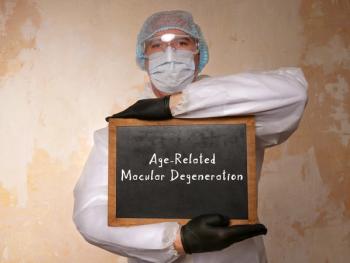
No treatment is currently available for the early stages of AMD, but some retrospective studies have reported an association between metformin and reduced risk of AMD.

Investigators concluded that both formulations of AR-1105 were well-tolerated and provided clinically meaningful and sustained visual improvements in vision and decreased retinal thickening despite that some patients had difficult-to-treat BRVO or CRVO with longstanding edema.

When dietary patterns were adjusted to include a Mediterranean diet, dietary nitrate intake was not associated with AMD progression independently.